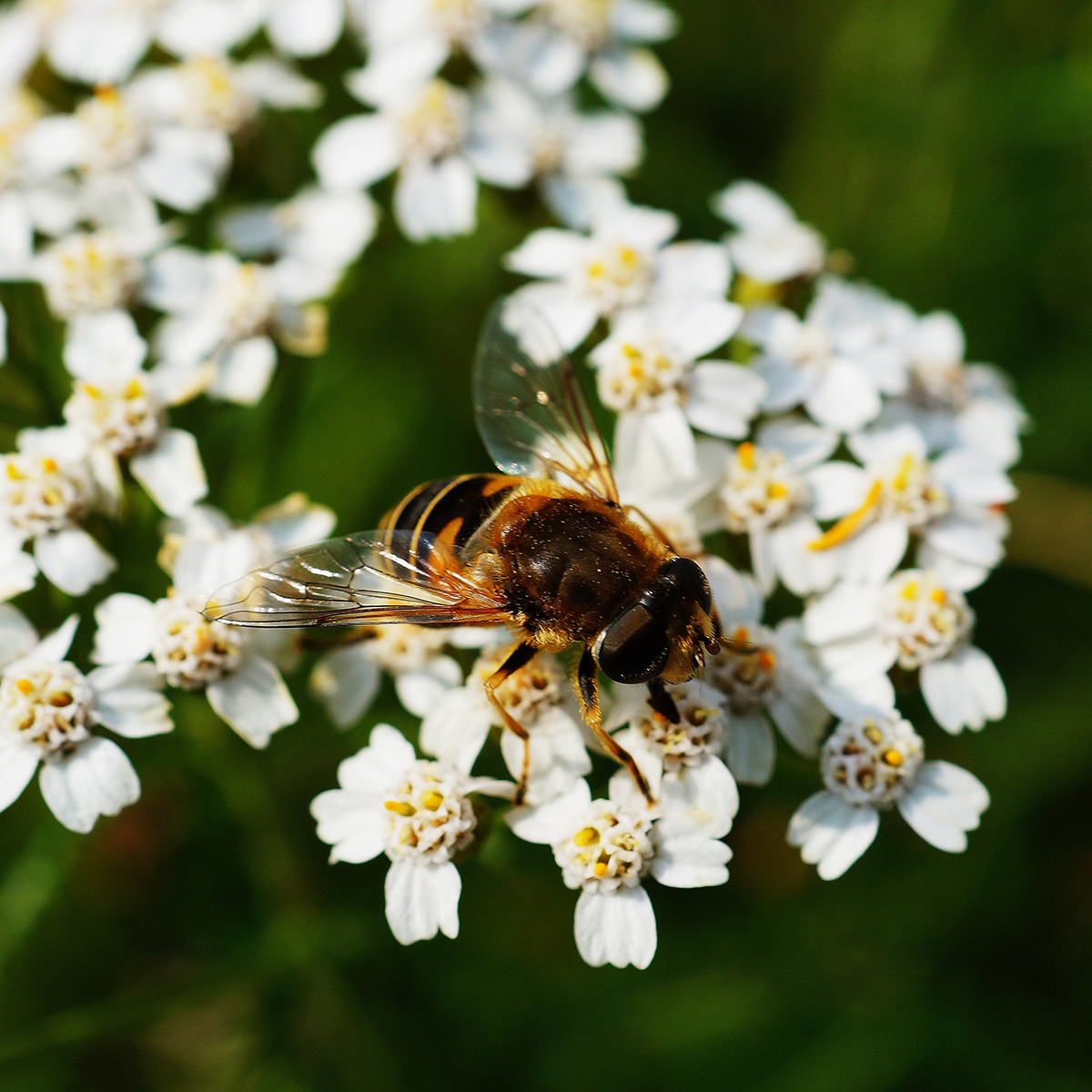
Organic honey is a sweet, viscous liquid produced by bees from the nectar of flowers. It is a natural sweetener and is widely used in various food and beverage products. Organic honey is an excellent alternative to refined sugar because of its numerous health benefits. In this blog post, we will discuss what organic honey is, where it comes from, how it is produced, why it is different from other sugars, how to judge the quality of honey, and how to use honey.
What is Organic Honey?
Organic honey is honey that is produced by bees that feed on nectar from flowers that have not been treated with pesticides, herbicides, or other chemicals. The bees are not fed with sugar water or other artificial sweeteners, and the honey is not processed using any chemical additives. Organic honey is certified by regulatory bodies, such as the USDA, which ensures that the honey meets specific organic standards.
Organic honey is different from commercially produced honey because it is produced using natural beekeeping practices and without the use of synthetic chemicals. Commercially produced honey is often produced using beekeeping practices that prioritize high yields and profit margins over the health of the bees and the environment. Commercial beekeepers often use antibiotics and pesticides to prevent disease and pests, and they may also feed their bees with sugar water or high fructose corn syrup, which can lead to weakened immune systems and poor health in the bees.
Where Does Organic Honey Come From?
Organic honey is produced all over the world, with the majority of it coming from Europe, North America, and Australia. The types of flowers that the bees feed on determine the flavor and color of the honey. For example, honey produced from clover nectar has a mild, sweet taste, while honey produced from orange blossom nectar has a citrusy flavor.
How is Organic Honey Produced?

Organic honey is produced by bees that collect nectar from flowers. The bees suck the nectar out of the flowers and store it in a special stomach called the crop. The bees add enzymes to the nectar in their crop, which breaks down the complex sugars into simple sugars. The bees then regurgitate the nectar into the honeycomb and fan their wings to evaporate the water content of the nectar, which thickens the honey. Once the honey is thickened, the bees seal the honeycomb with beeswax to protect the honey from moisture.
How is Organic Production Different from Commercial Production?
Organic honey production differs from commercial honey production in several ways. Organic beekeeping practices prioritize the health of the bees and the environment, while commercial beekeeping practices prioritize high yields and profit margins. Commercial beekeepers often use synthetic chemicals like antibiotics and pesticides to prevent disease and pests, while organic beekeepers use natural remedies and non-toxic methods.
Commercial honey production also has a greater environmental impact than organic honey production. Commercial beekeepers often transport their bees long distances to pollinate crops, which can disrupt local ecosystems and lead to the spread of diseases and pests. Commercial beekeeping can also contribute to the use of synthetic pesticides and herbicides, which can harm other pollinators and wildlife.
Organic honey production, on the other hand, supports the health of the bees and the environment. Organic beekeepers prioritize biodiversity and provide their bees with a healthy diet of nectar and pollen, which helps to support the local ecosystem. Organic beekeepers also avoid the use of synthetic chemicals, which helps to protect other pollinators and wildlife.
Why is Organic Honey Different from Other Sugars?
Organic honey is different from other sugars because it is a natural sweetener that contains vitamins, minerals, and antioxidants. It is also low on the glycemic index, which means it does not cause a rapid spike in blood sugar levels like refined sugar does. Organic honey is also an excellent source of energy because it contains glucose and fructose, which are easily absorbed by the body.
Organic honey is a healthier alternative to refined table sugar because it is unprocessed and contains natural vitamins, minerals, and antioxidants that are not present in refined sugar. Refined sugar is often stripped of its nutrients during the refining process, leaving behind only empty calories. Organic honey, on the other hand, is a whole food that provides both energy and nutrients.
Organic honey also has a lower glycemic index than refined sugar. The glycemic index is a measure of how quickly a food raises blood sugar levels. Foods that have a high glycemic index, such as refined sugar, can cause a rapid spike in blood sugar levels, which can lead to an energy crash and cravings for more sugar. Organic honey, on the other hand, has a lower glycemic index, which means it is absorbed more slowly and does not cause a rapid spike in blood sugar levels.
In addition to being a healthier alternative to refined sugar, organic honey also has a unique flavor and aroma that can add depth and complexity to a variety of dishes. The flavor of organic honey can vary depending on the type of flower the bees fed on, which can range from mild and sweet to bold and floral. The aroma of organic honey can also vary, ranging from delicate and floral to rich and earthy.
How to Judge the Quality of Honey?
The quality of honey can be judged by its color, taste, aroma, and texture. The color of honey can range from light amber to dark brown, depending on the type of flower the bees fed on. The taste of honey can range from mild to strong, depending on the flavor of the nectar. The aroma of honey can range from floral to fruity, depending on the type of flower. The texture of honey can range from smooth to crystallized, depending on the storage conditions.
When buying organic honey, it is essential to look for the following qualities:
Transparency:The honey should be clear and free of any sediment or impurities.
Flavour: The honey should have a distinct flavor that is characteristic of the type of flower it was produced from.
Aroma: The honey should have a pleasant aroma that is characteristic of the type of flower it was produced from.
Texture:The honey should be smooth and easy to spread.
Certification: The honey should be certified organic by a recognized regulatory body.
How to Use Organic Honey

Organic honey is a versatile sweetener that can be used in various food and beverage products. Here are some ways to use organic honey:
In Beverages: Add a teaspoon of organic honey to your tea or coffee for a natural sweetener. You can also mix organic honey into your smoothies or juices for a touch of sweetness and extra nutrients.
In Baked Goods: Replace refined sugar with organic honey in your baking recipes for a healthier alternative. Organic honey can also add moisture and depth of flavor to your baked goods.
For Cooking: Use organic honey in marinades for meat, fish, or vegetables for a sweet and tangy flavor. You can also use organic honey as a glaze for roasted vegetables or as a natural sweetener in sauces and dressings.
On Toast: Spread organic honey on toast for a quick and easy breakfast or snack. You can also mix organic honey with peanut butter or other spreads for a delicious twist.
When using organic honey, it's important to note that it is still a sweetener and should be consumed in moderation. Organic honey is high in calories and can contribute to weight gain if consumed in excess. The recommended daily intake of organic honey is 1-2 tablespoons.
In conclusion, organic honey is a great natural alternative to refined sugar. It contains vitamins, minerals, and antioxidants and is low on the glycemic index, making it an excellent source of energy without causing a rapid spike in blood sugar levels. When buying organic honey, it is important to look for transparency, flavor, aroma, texture, and certification. Organic honey can be used in various food and beverage products, including tea, baking, salad dressings, smoothies, toast, marinades, and as a natural cough suppressant. Enjoy the many benefits of organic honey as a healthier sugar alternative.
















The information below is required for social login
Sign In
Create New Account